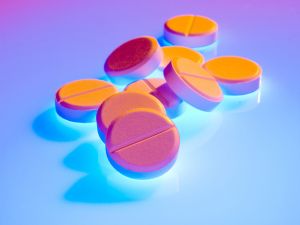 You need to take charge of your health and prevent any medication mistakes that could have serious consequences. Many people make these common mistakes and don’t realize it until it is too late. Arm yourself with knowledge, for your own health and the health of your family.
You need to take charge of your health and prevent any medication mistakes that could have serious consequences. Many people make these common mistakes and don’t realize it until it is too late. Arm yourself with knowledge, for your own health and the health of your family.
Don’t Take Liquid Medicine with a Spoon
Do you grab the teaspoon in the drawer to take your liquid medicine? If so, you are probably taking more medicine than the dosage requires. Regular kitchen spoons come in many different sizes, and they usually hold more than a measured teaspoon or tablespoon. Your best bet is to use an oral dosing syringe. You can ask for one for free at the pharmacy counter. Don’t have a syringe handy? Most liquid medications come with a dosing cup or a cap that you can fill. In desperation, use a teaspoon measure, the one you might have for measuring ingredients in baking; it is better than using a standard kitchen teaspoon.
It is so important to make sure that you don’t give too much medicine, especially to children!
Don’t Store Medication in the Bathroom
We’ve all grown accustomed to storing medication in a bathroom, but this isn’t the best idea. Medications can break down and change when they are repeatedly subjected tot he heat and humidity found in bathrooms. You are better off keeping medicine in a cool, dry place. We have ours stored on a high shelf in our kitchen. As a bonus, you won’t have nosy guests snooping through your medication.
You might also consider storing them in a half bathroom, one that doesn’t have a shower or bathtub.
What What You Eat or Drink
Medication can react with food or absorb differently on an empty stomach. Always read the label or information insert before you take any medication. You might have to take it with food. You may also want to avoid certain foods, such as citrus juice, which has been known to reduce or enhance effectiveness of certain medications, such as blood pressure or allergy medication.
Related Articles:
Always Confirm Your Test Results. It Could Save Your Life
The Importance of Cash in an Emergency Kit

